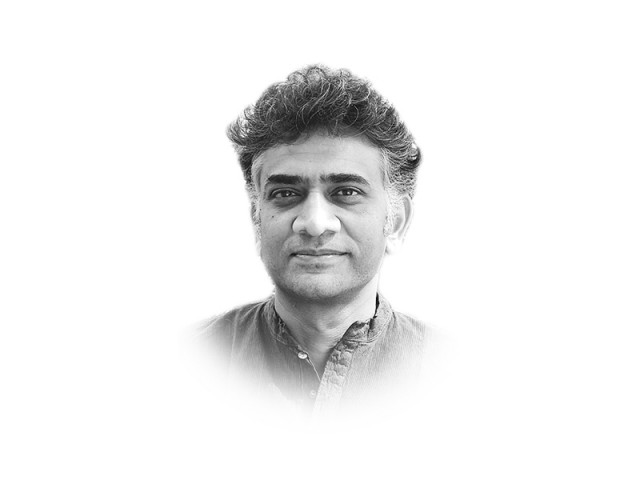Why was Gandhi killed?
Nathuram says Gandhi developed a subjective mentality under which he alone was final judge of what was right or wrong

The writer is the editor and translator of Why I write: Essays by Saadat Hasan Manto, published by Westland in 2014. His book, India, Low Trust Society, will be published by Random House
After his arrest, he spotted Gandhi's son Devdas who was editor of Hindustan Times. The encounter was described by Nathuram's brother and co-conspirator and fellow convict (though he was only jailed and not hanged), Gopal Godse, in his book Gandhiji's Murder And After. The younger Gandhi has come to the police station in Parliament Street to see his father's killer. Gopal Godse writes that Devdas "had perhaps come there expecting to find some horrid-looking, blood-thirsty monster, without a trace of politeness; Nathuram's gentle and clear words and his self-composure were quite inconsistent with what he had expected to see."
Of course, we do not know if this was the case. Nathuram tells Devdas: "I am Nathuram Vinayak Godse, the editor of a daily, Hindu Rashtra. I too was present there (at Gandhi's murder). Today you have lost your father and I am the cause of that tragedy. I am very much grieved at the bereavement that has befallen you and the rest of your family. Kindly believe me, I was not prompted to do this with any personal hatred, or any grudge or any evil intention towards you."
Devdas replies: "Then why did you do it?"
Nathuram says, "The reason is purely political and political alone!" He asks for time to explain his case but the police do not allow this. In court, Nathuram explained himself in a statement, but the court banned it. Gopal Godse reprints Nathuram's will in an annexure to his book. The last line reads: "If and when the government lifts the ban on my statement made in the court, I authorise you to publish it."
So what is in that statement? In it Nathuram felt about Gandhi that "the accumulating provocation of 32 years, culminating in his last pro-Muslim fast, at last goaded me to the conclusion that the existence of Gandhi should be brought to an end immediately. Gandhi had done very well in South Africa to uphold the rights and well-being of the Indian community there. But when he finally returned to India he developed a subjective mentality under which he alone was to be the final judge of what was right or wrong. If the country wanted his leadership, it had to accept his infallibility; if it did not, he would stand aloof from the Congress and carry on his own way."
The other charge is Gandhi helped create Pakistan: "When top leaders of Congress, with the consent of Gandhi, divided and tore the country — which we consider a deity of worship — my mind was filled with direful anger. I bear no ill will towards anyone individually but I do say that I had no respect for the present government owing to their policy which was unfairly favourable towards the Muslims. But at the same time I could clearly see that the policy was entirely due to the presence of Gandhi."
Nathuram thinks Gandhi was enthusiastic about dividing India when everything in history tells us the case was the opposite. He says Gandhi was a tyrant in Congress but also says Gandhi fasted to get the Congress to see his point of view. Why would a tyrant need to do anything other than just command? Nathuram objects to Gandhi's final fast (against India's refusal to release funds to Pakistan), but that was after India went back on its promise. It was Gandhi who made India act correctly and decently in that instance.
Little of what Nathuram says makes sense. It is, contrary to his statement to Devdas, not politics that shaped his actions. It was his hatred of the secular ideology of Gandhi, the true Hindu spirit that he is finally opposed to, having been brainwashed thoroughly by the RSS.
There is no action and no teaching of Gandhi that is exceptionable and this is why his global reputation as a politician has survived the decades intact.
Writing on Gandhi in 1949, George Orwell said: "One may feel, as I do, a sort of aesthetic distaste for Gandhi, one may reject the claims of sainthood made on his behalf (he never made any such claim himself, by the way), one may also reject sainthood as an ideal and therefore feel that Gandhi's basic aims were anti-human and reactionary: but regarded simply as a politician, and compared with the other leading political figures of our time, how clean a smell he has managed to leave behind!"
This is still the case in 2015, while Nathuram Godse's complaints have vanished in the mists of time.
Published in The Express Tribune, January 25th, 2015.
Like Opinion & Editorial on Facebook, follow @ETOpEd on Twitter to receive all updates on all our daily pieces.



















COMMENTS
Comments are moderated and generally will be posted if they are on-topic and not abusive.
For more information, please see our Comments FAQ